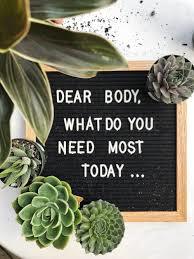Have you ever wondered what fitness experts mean by “listen to your body”? What if your body is telling you to get off the treadmill and go eat pizza and donuts? In this post I’ll explain what the saying means and how to use it to improve your results in the gym.
The basic principle behind exercise is that it places a stress on your body, and in response your body adapts by getting fitter. If the stress is too low, no adaptation occurs. If the stress remains too high, you’ll end up over trained or injured. In between, there’s a window of opportunity to make great progress. That’s where listening to your body comes into play… adjusting your workouts, diet, and rest to ensure that you’re stressing your body the right amount. As you get more advanced in your training and gains are harder to come by, the window between stagnation and injury gets smaller, and listening to your body becomes even more crucial to making progress.
Eight critical questions that can only be answered by listening to your body:
- How exhausting should your workouts be? Your workouts should be challenging and at times uncomfortable, but they shouldn’t make you vomit, feel like you’re dying, or turn you into a worthless pile of goo for hours after your workout. 30 minutes after your workout, you should feel fine going about the rest of your day. It can be helpful to occasionally push your limits to better understand where they, but it shouldn’t be a regular thing. Find the sweet spot of workout difficulty by listening to your body.
- Are you recovered from your previous workout? If you’re still extremely sore from your last workout or you’re sleep deprived or your stress level has been at 10 all week, you should strongly consider taking it easier in the gym that day. There’s no sense in hammering away at your body if it’s not recovered from the previous session. Get your heart rate up, get the blood flowing, and live to fight another day.
- How heavy should you lift? Heavy is a relative term that depends on your abilities and goals, but my point is that you should be flexible enough to choose your weights for the day based on how you feel. If you had planned to go for a new personal record on a lift, but your warm-ups feel weak and sluggish or your joints are aching, save it for another day. On the other hand, if you feel fantastic you may want to go heavier than planned. As they say, strike while the iron is hot. You can only do that by listening to your body.
- How much should you warm up? Your program may call for 5 minutes on the treadmill followed by a light set of 15-20 reps to get warmed up. The reality is that you may need more or less of a warm-up depending on the temperature of the gym, the clothes you’re wearing, what you were doing prior to the workout, among other factors. However, there’s no need to overcomplicate things. Listen to your body and adjust your warm-up time as needed. It will tell you when it’s warm and ready to go.
- What exercises should you do? We’re all built differently. After you gain some experience in the gym, you should know which exercises to avoid because they hurt your joints or don’t do anything for you. Pick exercises that you can feel in the target muscles and that you’re able to do with proper form. Your results will be so much better than blindly following a cookie cutter routine.
- How much should you eat? Diet is a complicated subject, but s good starting point is to pay attention to your hunger signals. Eat enough at each meal to feel satisfied but not full. Between meals, it’s OK to get hungry at times, but you shouldn’t feel like you’re starving for hours. If you’ll avoid junk foods most of the time and eat a reasonable quantity of food, you’ll be ahead of 90% of people out there when it comes to diet.
- What type of diet should you follow? Some people feel great on a low-carb diet, and others feel like garbage on it. The same goes for a low-fat diet. Some people are intolerant to dairy or gluten, and others aren’t. You get the idea. Someday there may be medical or genetic tests to determine the ideal diet for you, but in the meantime the only way is to try different diets and listen to your body.
- How much should you sleep? The standard recommendation is 8 hours, but some people need as much as 9 or 10, while others do well with as little as 3 or 4. Exercise can lower or raise your sleep requirements depending on the intensity of your workouts. Since there’s no way to calculate your personal sleep requirements, your best bet is to listen to your body. Adequate sleep can make such a huge difference in your workouts and quality of life in general, I’d urge you to make the effort to get to bed earlier if your body is asking for it.
I hope I’ve made a convincing case for always allowing room for adjustments in your diet and exercise program. Any good coach or trainer would adjust your program based on how your body reacts to it, so there’s no reason you shouldn’t do the same. After all, no one is in a better position than you to hear the signals that your body is sending. All you need to do is listen.


